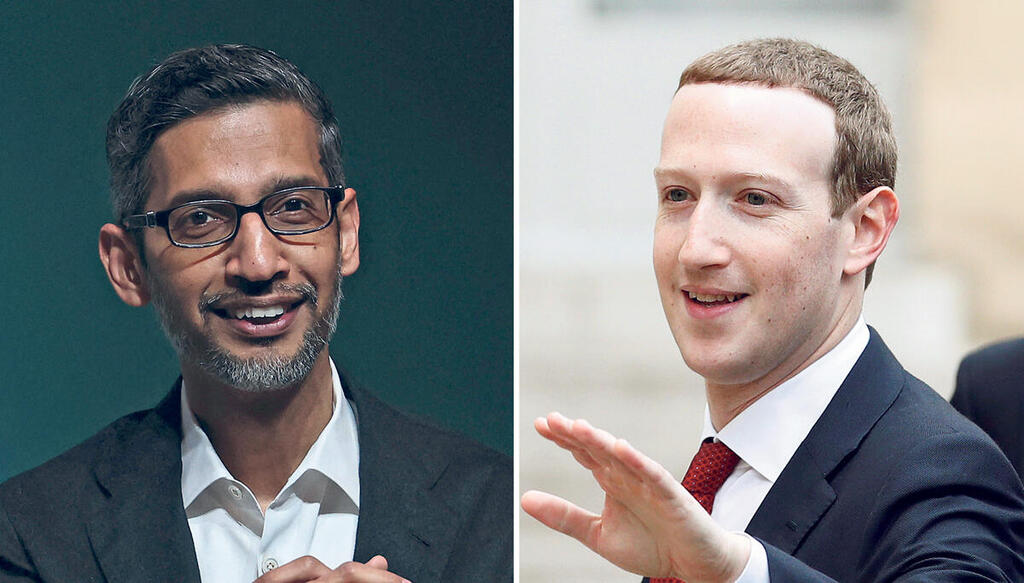
Is your feed filled with junk? Blame it on the algorithm
Social networks are trying to increase revenue by tweaking their settings. The result: more junk content and problematic ratings. The solution: algorithm-free platforms, such as WhatsApp.
Facebook's newsfeed has been struggling to provide users with quality and relevant content for years. But in recent weeks, it seems to have deteriorated to new depths. This issue is not exclusive to Facebook. User complaints about Google, YouTube, and other platforms reveal that many social media networks have algorithm problems that flood users with irrelevant content, harming the activities of creators and small businesses.
Google's search engine is a crucial growth avenue for small websites, particularly content-based ones. However, in recent months, it no longer delivers the same quality results as before. In February, HouseFresh, a website specializing in air quality and air purifiers, claimed that Google began prioritizing search results from large content sites like BuzzFeed and Rolling Stone, even though their content lacked the quality and professionalism of specialized sites. According to the website’s editor Gisele Navarro, Google prioritizes pages optimized for search engines (SEO) rather than those providing relevant information. In an update last week, Navarro revealed that HouseFresh has disappeared from Google search results, with traffic dropping from 4,000 visitors a day in October 2023 to only 200.
The significant drop in traffic for HouseFresh and many other websites is due to an extensive core update by Google. Revital Salomon, founder and CEO of The Shark Lady, which specializes in managing and promoting websites, said the update "threw many websites into a tailspin," especially in English search results. "Many website owners, both small and large, reported a 50-90% drop in traffic. Contrary to initial beliefs, the update did not focus on penalizing AI-generated content but seemed aimed at cleaning up search results from ad-heavy and spam sites. However, it ended up promoting larger sites at the expense of smaller ones."
Evidence supporting this claim was provided by The Verge, which produced an article that ranked high in the search results for "best printer 2024" but consisted of junk content created by Gemini (Google's chatbot), including jokes and meaningless gibberish.
Google has also started highlighting search results from Quora and Reddit. According to Salomon, this is not coincidental. "Google made an agreement to use their content to train its AI," she explained. "The problem mainly affects users trying to find useful information and website owners struggling to reach their audience. Google’s changes seem to have broken some essential search engine functions."
On YouTube, veteran creators have also reported algorithm issues that significantly harm their activities. "When I first started, the YouTube algorithm was simple," YouTuber and cookbook author Rosanna Pansino said in a recent interview for the "How I Built This" podcast. "Growth on YouTube was much more natural. Now, the algorithm is very complex and has specific metrics that need to be met, or it won't show your videos to your audience. It’s heartbreaking."
Instagram presents another issue: prioritizing aggregation accounts. These accounts do not produce original content but centralize photos and videos uploaded by others, sometimes without proper credit. This increased exposure harms original content creators. Instagram acknowledged the problem and announced algorithm changes last week.
The results might not be positive, potentially harming celebrity fan accounts and informative accounts that use infographics created by prominent organizations. Elon Musk, the controlling owner of X (formerly Twitter), claimed the change would lead to a 99% drop in content on Instagram, implying that the platform lacks original content.
One possible reason for the algorithm’s deterioration is a deliberate move by platforms to increase revenue. "When I post on Facebook, a message says it reached 5% of my audience and that I need to pay a thousand dollars for it to reach 50%," Pansino said. "This also happens on YouTube. You have to pay to play."
Without the algorithm interfering
This practice is not new. But in the past two years, with the decline in the pandemic-driven surge, ad-based platforms like Facebook, Instagram, and YouTube have faced a dramatic drop in advertising revenue. They have had to develop new ways to increase their income, possibly by changing algorithms to force creators to pay more for exposure they previously received organically.
The result is not necessarily the disappearance of high-quality content but a shift to algorithm-free platforms like WhatsApp and Telegram, where audiences can still be reached organically. "Relying on a single marketing channel is risky," Salomon said. "Content distribution should be diversified across relevant channels. Telegram, for example, has become very significant. Good, interesting, and relevant content attracts people. The goal should be to produce quality content for humans, not to play algorithmic games. It’s better to have 50 engaged users than 500 who quickly leave."














